It certainly takes more than a glance to identify the origin,
or the age of the carpet.
Too often, in social media, do we see bad photos of not so bad carpets with requests
for identification of origin, age and value.
There are a number of ways scholars and experts can identify the origin of a rug, at times, narrowing it down to a village, or small tribal sub-group. They can ‘guesstimate’ the age of a rug too. The monetary value of a rug however depends on too many factors to be suggested with any level of certainty.
Rugs speak for themselves; that’s a fact. Their secrets are revealed through design, foundation, selveges, fringing as well as material, including dyes.
The design is of paramount importance; one should be able to recognize a Nain, Keshan or Kashmar by their distinctive designs; one may tell a Kazak from a Shirvan. However, it is the study of the rug foundation, the intricate crisscross of warps and wefts that yields the ultimate answer – Thus Spoke the Rug.
Most antique (1800 and early 1900s) Kazaks, for instance, have a distinct red wool foundation; newer Kazaks (pretty but not collectible) will have a unnaturally white cotton base.
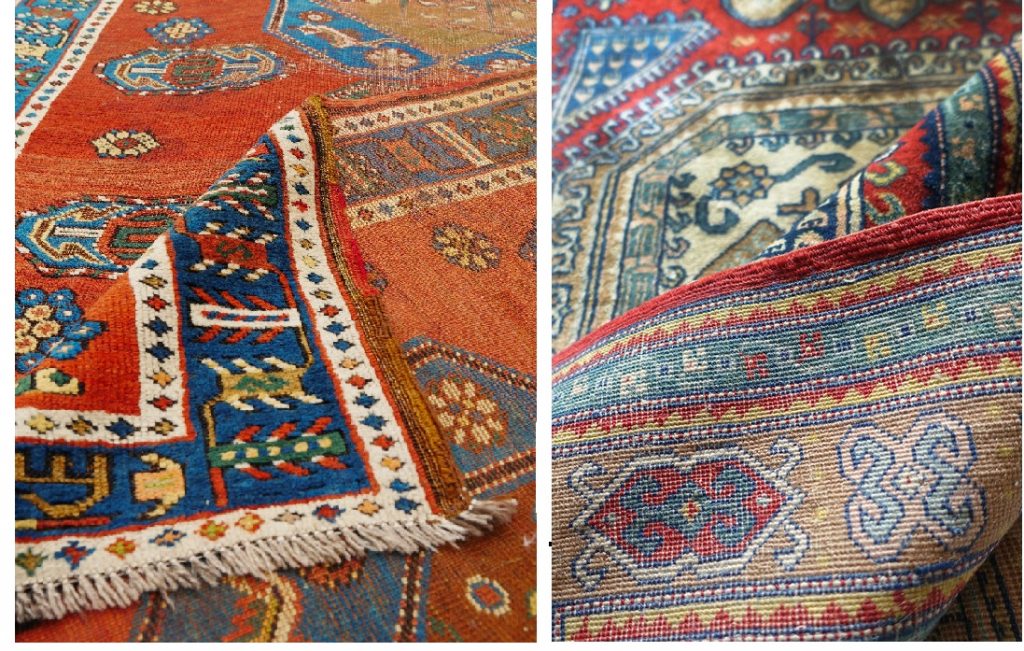
Most antique Kuba region Caucasian rugs, have the so-called depressed foundation which appears as nearly three-dimensional.
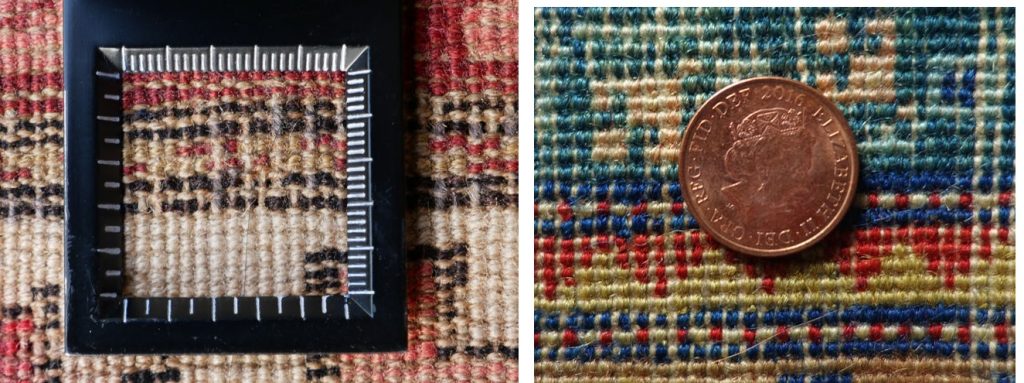
Most antique Karabagh rugs show dark wool wefts and wool foundation.
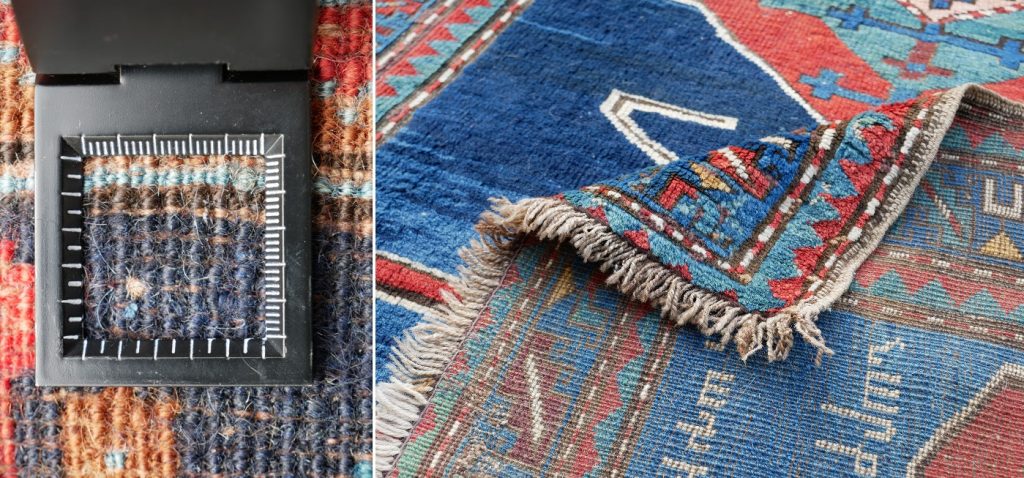
Nearly all Hamadan rugs (Malayer, Mezlagan, Tafresh, Zaijan, etc.) are hand-knotted on a single-weft foundation.
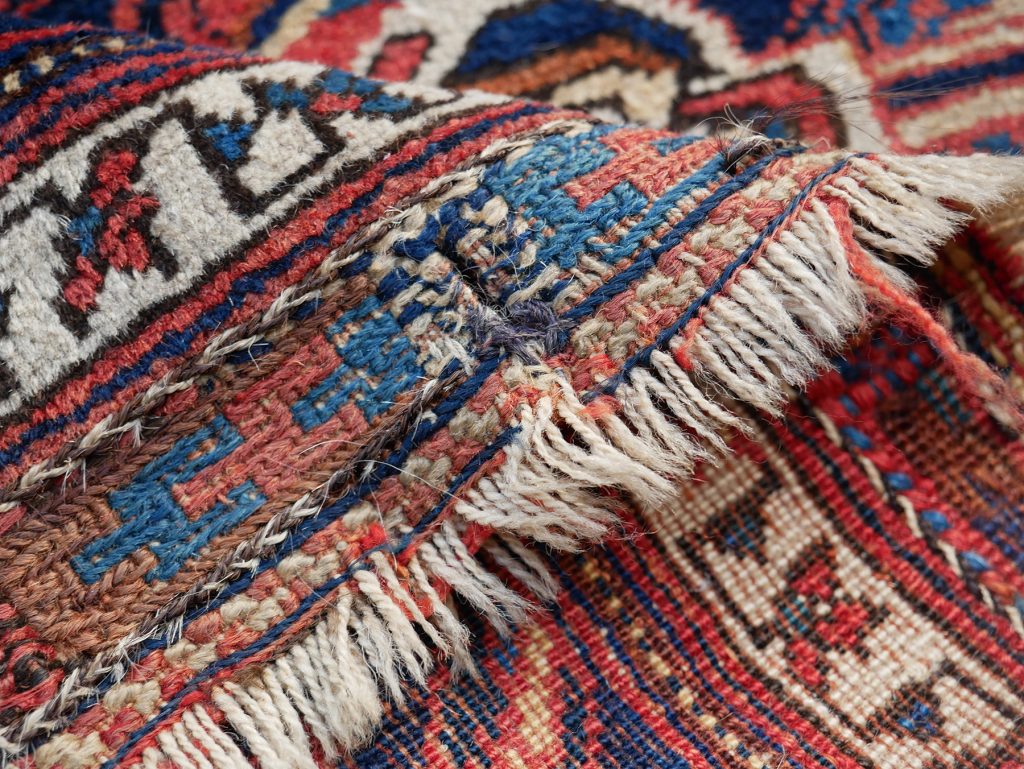
Both the Bahtiari and the Afshars adopted cotton foundation in he 1930s; antique and early 1900s rug from these groups will have all-wool base.
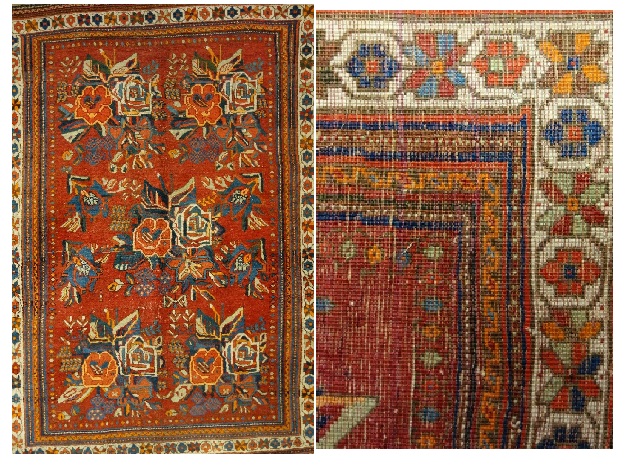
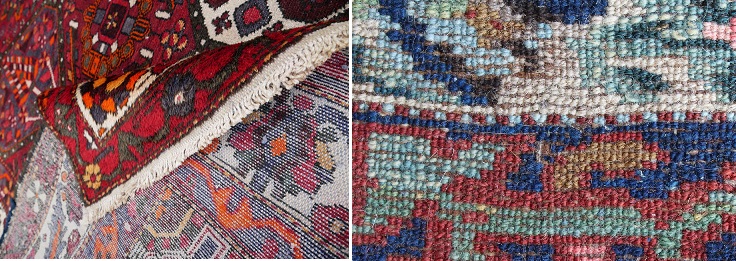
To be continued …
